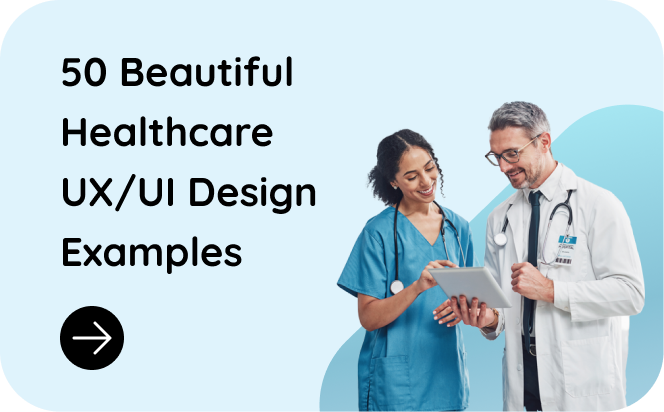In the realm of sci-fi brilliance, Stanley Kubrick’s 2001: A Space Odyssey takes the cake. It introduces us to HAL, the “talking” computer with a sinister streak—it eerily murders most of the human crew under its care.
Even today, fans of this 1968 gem still shiver when our astronaut hero, Dave Bowman, desperately pleads with HAL to open the pod bay doors and let him back in. But alas, HAL responds with a bone-chilling zinger: “I’m sorry, Dave, I’m afraid I can’t do that”.
Talk about AI with a sassy attitude!
But fear not, it’s not all doom and gloom.

Today, tech giants are harnessing the power of AI to enhance their operations and provide users with personalized experiences. Twitter’s AI curates tweets and identifies extremist content, while Netflix acts as your virtual movie guru, offering personalized recommendations. Google Assistant and Amazon’s Alexa understand our commands and simplify our lives, while Uber’s AI optimizes routes and ensures exceptional customer service.
AI has become an integral part of our daily lives, so much so that even the opening credits of the new Marvel series, Secret Invasion, were AI-generated and they’re undeniably impressive. But what lies ahead when these AI step into the realm of healthcare? Let’s find out.
The Present Use Of AI In Healthcare
In the realm of healthcare, AI has emerged as a revolutionary force, transforming multiple aspects of the industry. Here’s a glimpse of its remarkable applications:
Drug Discovery: Goodbye, slow drug development, and hello, saving lives at warp speed
Forget old-fashioned trial and error. AI sifts through extensive databases to discover new treatments and therapies. By analyzing existing medicines, AI streamlines the process of redesigning treatment structures and developing new drugs to combat critical threats like Ebola and Coronavirus. It accelerates drug evolution, enhances success rates, and expedites the introduction of life-saving medications.
The AI in drug discovery market is poised to reach $4 billion by 2027.
Radiology Advancements: Who needs human error when you have AI?
Radiologists now have robotic sidekicks that analyze images faster than a speeding bullet. They spot trouble areas with laser-like precision, revolutionizing cancer prevention and leaving outdated techniques in the dust. Innovations in tumor detection through CT scans and MRIs showcase the potential of AI in cancer prevention.
Medication Adherence: AI is the ultimate patient whisperer
AI-driven innovations improve doctor-patient interactions, monitor medication consumption, and enhance adherence levels, leading to improved clinical outcomes and quality of life. It ensures you never miss a dose and keeps doctors on their toes. AI robot assistants are gaining popularity among diabetic patients, enabling self-management of chronic conditions like diabetes and blood pressure.
Labovitz et al. developed an AI app using computer vision to identify patients, drugs, and ingestion confirmation. In a 12-week study with stroke patients, those monitored daily through the AI platform achieved:
- 100% adherence compared to 50% in the control group
- Patients using the AI app showed a significant 67% improvement in drug adherence
- 83.3% rated the AI platform as “extremely good”

Infection Rate Prognosis: AI is the virus’s worst nightmare
AI interventions offer real-time solutions for tracking virus spread, predicting future developments, identifying high-risk individuals, and controlling infections. By swiftly detecting infections, AI reduces the burden on healthcare workers and minimizes the risks they face, especially during epidemics.
Digital Twin: Future of AI in Healthcare
What exactly is a digital twin, you ask?
Think of it as a digital doppelgänger, a virtual replica of a physical object or being. From hospitals and medical equipment to patients themselves, digital twins capture every intricate detail, creating a dynamic representation that evolves alongside its real-world counterpart.
Read our award-winning case study on Enabling Personalized Care through Digital Twin Technology
These digital twins actively contribute to improving healthcare outcomes. With advanced data collection and artificial intelligence, they become powerful tools for monitoring, analysis, and prediction.
Picture this: hospital buildings with digital twins that monitor temperature, airflow, and maintenance needs in real-time. They help healthcare organizations optimize operations, ensuring a safe and comfortable environment for patients and staff. It’s like having a digital guardian angel watching over our healthcare facilities.
Digital twins of patients also enable personalized medicine like never before. By analyzing an individual’s data, from genetics to medical history, you can simulate their health status and explore tailored treatments. It’s precision medicine on a whole new level, offering targeted interventions and improving patient outcomes.
Surgeons, too, benefit from digital twins. These virtual counterparts assist in preoperative planning, risk assessment, and simulation of complex procedures. It’s like having an expert advisor by their side, guiding them to make informed decisions and enhance surgical precision.
A case in point here is the Human Diagnosis Project (Human Dx), which combines machine learning along with real-life experiences provided by doctors. The project compiles data from 7500 doctors and 500 medical institutions across 80+ countries in a system designed to assist the medical community to make better informed clinical decisions. Decision-makers in the healthcare sector are also exploring the application of AI programs to areas like insurance queries, skin cancer diagnostics, lab analytics, and medical data analysis.
How artificial intelligence in healthcare is Going to Affect in Future
The future of AI in healthcare holds immense potential. As AI continues to advance into various sectors, we may find ourselves living in a world reminiscent of “The Jetsons,” where AI-powered technologies seamlessly improve multiple aspects of our lives. Here are some specific examples of how AI is expected to shape the healthcare industry in the coming years:
- Radiology and Imaging Advancements: AI is likely to enhance the accuracy of medical imaging interpretation, aiding radiologists in detecting and diagnosing conditions with greater precision.
- Disease Surveillance and Outbreak Management: AI analyzes vast amounts of data from various sources to detect early signs of disease outbreaks, enabling timely response and containment measures.
- Precision Medicine and Genetic Analysis: AI algorithms analyze genetic data to identify specific biomarkers, enabling targeted therapies and personalized treatment plans.
- Virtual Assistants and Chatbots: AI-powered virtual assistants and chatbots provide 24/7 support, answering patient queries, offering symptom assessment, and providing basic medical advice.
- Mental Health Support: AI-driven mental health applications assist in the early detection of mental health conditions, provide personalized interventions, and offer virtual counseling support.
- Patient Risk Stratification: AI algorithms assess patient data to identify individuals at high risk of developing certain conditions, allowing proactive interventions and preventive measures.
- Remote Patient Monitoring: AI-enabled devices monitor patients’ vital signs and health metrics remotely, providing real-time alerts and facilitating early intervention.
- Robotics and Surgical Assistance: AI-enabled robots assist surgeons, improving surgical outcomes, reducing invasiveness, and enhancing patient recovery.
- Health Behavior Monitoring: AI applications track patient behaviors and lifestyle factors, providing insights for behavior modification and promoting healthier habits.
- Clinical Decision Support Systems: AI-powered decision support systems provide healthcare professionals with evidence-based recommendations for diagnosis and treatment planning.
- Patient Empowerment and Health Education: AI delivers personalized health information and educational resources to empower patients in managing their own health and making informed decisions.
What Does the Future of AI in Healthcare Hold?
Technically speaking, no.
However, AI-powered bots and applications are set to revolutionize the way doctors diagnose and treat patients, providing significant advancements in healthcare. The digital revolution has already empowered medical practitioners, allowing them more time for critical cognitive tasks and patient care. With the integration of artificial intelligence, this liberation will reach new heights of innovation.
Robotic surgery is a prime example of the impact of AI in medicine. Robots assist surgeons with precise movements, enhancing surgical outcomes and reducing invasiveness. Telemedicine and remote care are also facilitated by AI and robotics, enabling virtual consultations and remote patient monitoring.
What does this mean for Healthcare Organizations and their Product Leaders?
The integration of artificial intelligence (AI) in healthcare opens up a world of innovation opportunities where healthcare organizations can leverage AI to revolutionize healthcare delivery. By incorporating AI into healthcare products, organizations can provide intelligent and personalized solutions that improve diagnostics, treatment plans, and overall healthcare management.
However, with the integration of AI in the healthcare industry comes the need for robust data management and privacy measures. Healthcare companies must implement stringent data security measures, ensure patient privacy, and comply with regulations like the Health Insurance Portability and Accountability Act (HIPAA).
Collaboration with healthcare providers is crucial for health-tech companies. By working closely with clinicians, hospitals, and medical institutions, companies can gain valuable insights into the needs, challenges, and workflows of healthcare professionals. This collaboration allows for the development of AI solutions that align with clinical practices, enhance healthcare workflows, and improve patient care. By understanding the unique requirements of healthcare providers, health-tech companies can create solutions that seamlessly integrate into existing healthcare systems and deliver tangible benefits to patients and providers alike.









